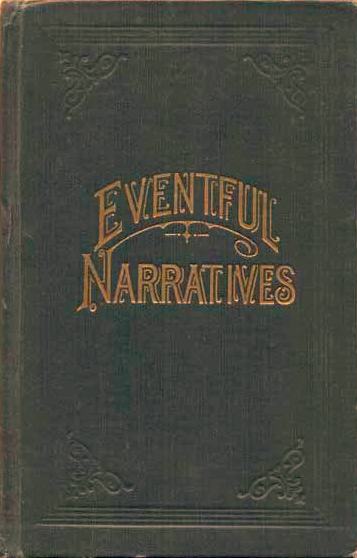Excerpts from
Juvenile Instructor - 1887
Written by Thomas A. Shreeve (1851-1931)
~
"Queer faith—strange faith—I can't see it. I am busy now. Come to-morrow at twelve o'clock. I will meet you at the post office. I want to see you."
I replied:
"I must leave at one o'clock. I will scarcely have time to meet you."
"Nonsense! Come. That steamer won't sail before four or five o'clock."
Promptly at the appointed time the next day I was at the post office, and again met Mr. Alford. He shook me warmly by the hand and said:
"I expect, young man, you haven't got very much money."
"You are right," I answered.
In purchasing my ticket to Littleton I had expended my last shilling. My destination was the town of Rangiora, some distance from Port Littleton, and I needed means to pay my fare to that place.
Mr. Alford pressed ten shillings in my hand, at the same time saying:
"I do not understand how you folks can travel without purse or scrip."
I could have explained to him how his ten shillings had relieved me, and enabled me to fulfill the commands of my Master; but I saw that he was a business man—skeptical and unapproachable to the message which I was bearing to the world, and I made no attempt to encroach further upon his time.
I went on board the vessel during the afternoon, and felt that I was obeying the sacred behest which had been so often and so mysteriously repeated to me in Sydney. But the adversary seemed determined to cling to me and to fill my mind with evil thoughts. I tried to banish sadness by gazing from the deck of the moving vessel at the beautiful city of Sydney and the still more beautiful bay. But the effort was vain; my prevailing emotion was one of despondency. The ship, the receding lands, the sea into which we were passing—all seemed so vast; and I seemed such a lonely mite, that I could not find comfort in that hour.
Gradually, as the night came on, the shores grew indistinct. Only a myriad of lights twinkled out to show where the city lay. From vessels riding at anchor or moving up the bay to moor after their long voyages, came shouts of masters and songs of men. The azure depths of sky and sea held each its countless stars. But the beauty of the scene only made me more impressionable to melancholy; and I took one long farewell look at the light-dotted city and the light-dotted bay—lovely beyond description—and then went below.
I have never seen Sydney since that lonely hour.
CHAPTER III.
AN IRREVERENT COMPANY OF PASSENGERS—SICKNESS AND A HORROR OF LIFE FALL UPON ME—A "HELPFUL VISION"—"ONLY BE TRUE"—INVOKING THE NAME OF CHRIST—A JOLLY SINGER AND A JOLLY SONG—LANDING AT PORT LITTLETON—STRANGE RECOGNITION OF BROTHER NORDSTRAND—HIS DREAM CONCERNING ME.
On board the Wakatipu was a large company of worldly people, representing nearly all professions and stations in life. The majority of the people were extremely sociable, and very soon after we got out into the open water a number of passengers gathered in the cabin with musical instruments, to while away an hour and to banish sadness. They made a great medley of their pleasures; and some of them were decidedly irreverent. A portion of the party wished to dance, and the man who supplied the music claimed to know but one tune. This was:
"Sweeping through the gates of the New Jerusalem,
Washed in the blood of the Lamb."
And to this very strange "schottische" some of them danced a merry-go-round.
Notwithstanding the gaiety on board, the feeling of dread grew upon me. It seemed to possess my very soul. Probably I had given way too much to sadness in gazing upon the distant lights of Sydney, and now I could not banish the evil thoughts which thronged my mind.
All manner of gloomy forebodings oppressed me. While I remained in Sydney, I felt that there was some tie between myself and my companion; but now I felt that I had cut myself adrift even from him.
This was the first time in my life that ever I felt how completely alone a man can be when surrounded by joyous company. I tried to think of comfort and companionship at the end of my voyage; but the reflection proved to be an unfortunate one, because I knew no soul in all New Zealand. Death must actually be something to dread for any person to whom it will bring the appalling loneliness which possessed me at this hour.
